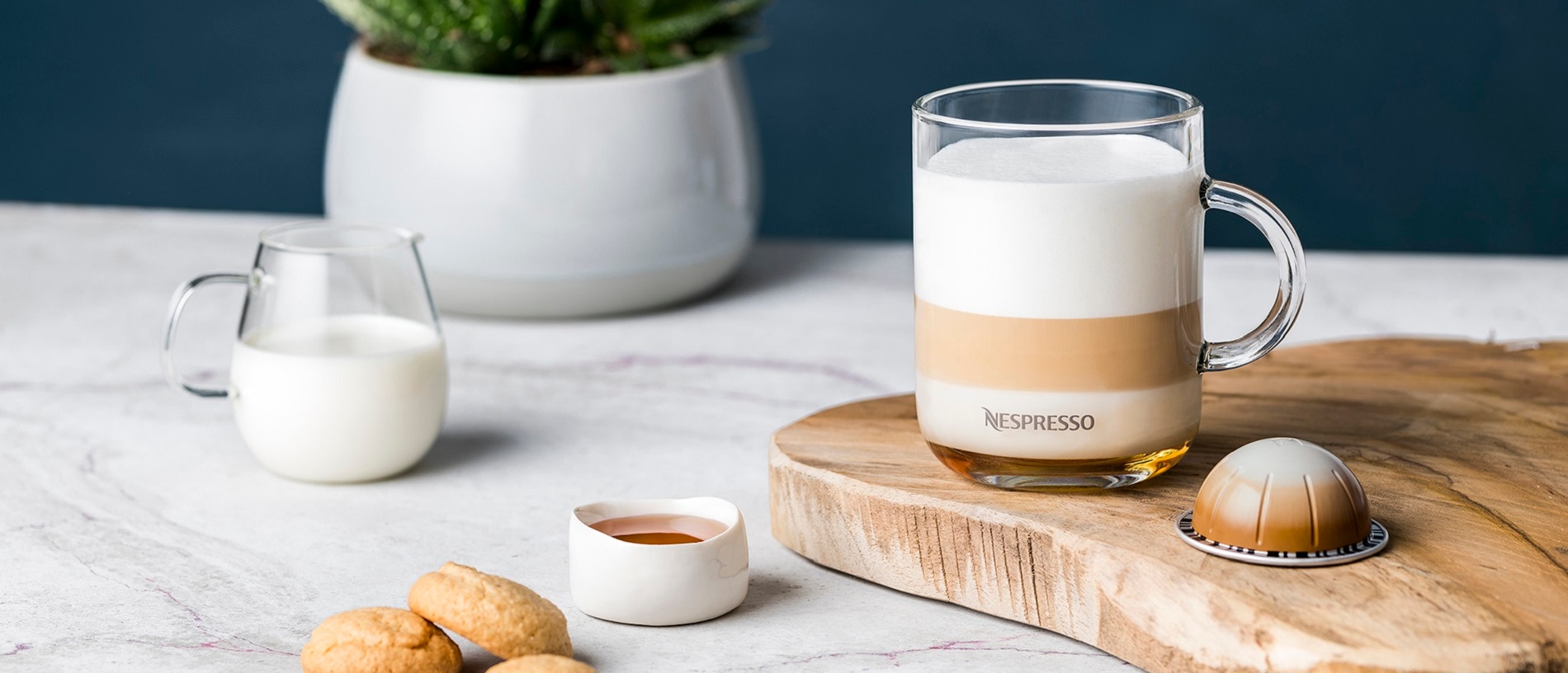Header

What is soy milk?
Before we delve into the tricks and techniques to heating soy milk correctly, we need to understand what it is made of. No surprise here, soy milk is made using soybeans. The beans are cooked in water, grinded and then pressed to extract the milky liquid. The final texture of the milk can vary depending on the brand from thin, to sweet and creamy – this can be a result of thickening agents. Some brands also add sugar and salt for flavour.
With a similar amount of protein per serving to cow’s milk, soy milk is one of the more popular non-dairy alternatives. When frothed correctly, the higher protein levels work to create a delicious froth similar to that of dairy milk.. Reduced fat varieties of soy milk are also available for the calorie conscious but the result is a lower level of protein.
Does soy milk froth?
Soy milk can be tricky to thicken and use for latte art, due to fat content and varying protein levels, depending on the brand.
Soy milk has a lower fat content than whole cow’s milk making it particularly sensitive to heat. Heating soy also lowers the protein level meaning that if you add too much heat, too quickly the result will be a curdled coffee. But all is not lost. Delicious, creamy, frothy soy milk is possible with just a good quality soy milk and a little bit of technique.
Soy is often the non-dairy choice for baristas because with a little bit of skill and technique it can create a foam comparable to dairy milk. Paired with good quality coffee, soy milk’s nutty, creamy flavour can even enhance the taste of your favourite blend.
Using soy milk does not mean you have to sacrifice on foam. We’ve all experienced occasions when dairy-free milk simply refuses to texturise or when you order a soy cappuccino at your local café only to receive a coffee with as much froth as the flattest flat white. And while there’s a lot more to a delicious coffee than a milky moustache, it’s certainly one of the most indulgent parts of the coffee drinking experience.
How to make a creamy, foamy coffee with soy milk
- Use refrigerated soy milk
- Give your milk carton a good shake before you get started.
- Pour the correct amount of soy milk into a foaming jug of an appropriate size.
- Begin texturising the milk immediately and stop once you see a creamy texture forming.
- Continue to heat the milk while letting as little air through as possible. Too much air creates a bubbly texture and will ruin your foam.
- Don’t overheat as this can lead to splitting when your milk hits your espresso shot.
- Pour slowly into your coffee to reduce the chances of splitting.
Perfecting silky soy milk may take a few attempts. For the best results take time to practice, get to know your frother, and try a few different brands of soy milk to discover which works, and tastes, best.
Need a simple solution to milk frothing?
Shop Nespresso’s range of milk and coffee machines online.
If you liked this article, please share:
